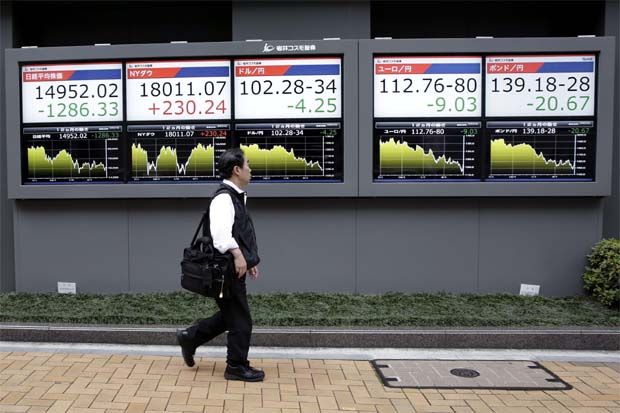Tokyo: Asian shares were on the defensive on worries about North Korea but expectations that Beijing will maintain support for its economy ahead of a key congress supported Chinese stocks and copper prices.
MSCI’s dollar-denominated index of Asia-Pacific shares outside Japan was up 0.1 percent thanks to gains in Chinese shares, though many markets were in the red.
Japan’s Nikkei fell 0.5 percent while S&P500 mini futures ESc1 maintained losses incurred on Monday following Pyongyang’s nuclear test at the weekend. They last stood at 2,466, 0.3 percent below their close on Friday.
U.S. cash equity markets were closed on Monday for a holiday.
The escalating geopolitical tensions kept many investors on edge.
The White House declared on Monday that “all options to address the North Korean threat are on the table” while U.S. Ambassador to the United Nations Nikki Haley urged the 15-member U.N. Security Council to impose the “strongest possible” sanctions to deter Pyongyang.
The fears about North Korea kept safe-haven assets in demand, with gold XAU= rising 0.15 percent to $1,336 per ounce, after having hit a 11-month high of $1,339.8 on Monday.
In the currency market, the yen, which usually gains on risk aversion due to Japan’s net creditor nation status, gained 0.4 percent to 109.32 yen to the dollar, near Monday’s high of 109.22 yen.
The euro maintained its slim gains on Monday to trade at $1.1896.
But it kept some distance from a 2-1/2-year high of $1.2070 hit last week on rising expectations that a stronger euro could slow the European Central Bank’s (ECB) plans to rein in its bond-buying stimulus scheme.
The Chinese yuan hit a near 16-month high of 6.515 per dolla, and has gained 2.0 percent in less than two weeks, a sizable move for the pair.
Shanghai composite index of mainland Chinese shares also hit their highest levels since January 2016, owing to solid economic growth in China in recent months and expectations Beijing will not tolerate economic disruption ahead of the Communist Party’s congress in mid-October.
Such expectations also helped to lift copper to a near three-year of $6,944.5 per tonne. It last stood at $6,933, up 0.2 percent on the day.
The prices of steel and iron ore have rallied in recent weeks.
U.S. crude oil prices edged higher while U.S. gasoline prices slumped to pre-Hurricane Harvey levels, as oil refineries and pipelines in the U.S. Gulf Coast slowly resumed activity, easing supply concerns.
U.S. West Texas Intermediate (WTI) crude futures ticked up 0.2 percent to trade at $47.38 per barrel.
The return of U.S. refineries ended a spike in gasoline prices as initial fears of a serious supply crunch faded.
U.S. gasoline futures dropped 4.0 percent from their last close, to $1.68 per gallon, down from $2.17 touched on Aug. 31 and back to levels last seen before Harvey hit the U.S. Gulf coast and its large refining industry.
Elsewhere, bitcoin dropped further from Saturday’s all-time high of $4,979.9 to trade at $4,131 after China on Monday banned the practice of raising funds through launches of token-based digital currencies, or so-called initial coin offerings (ICO).
























